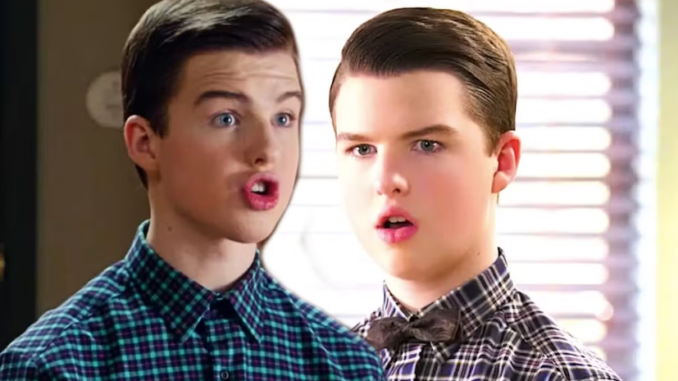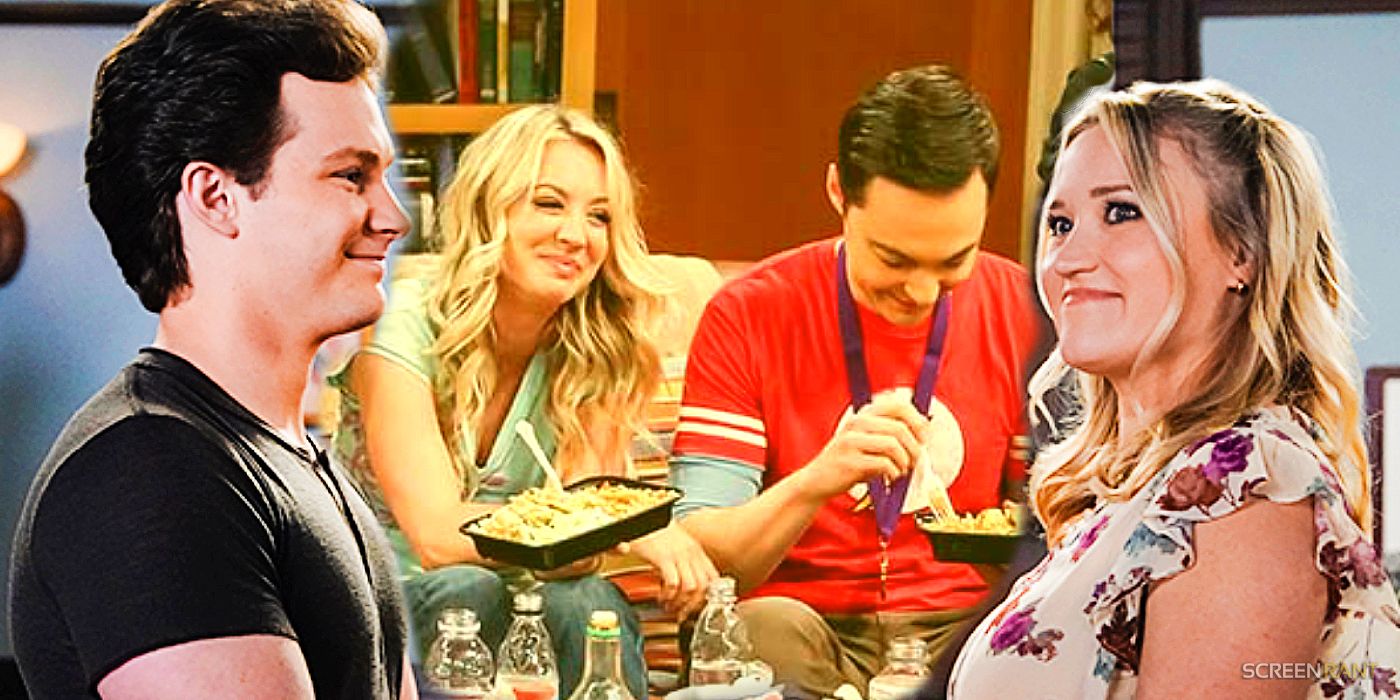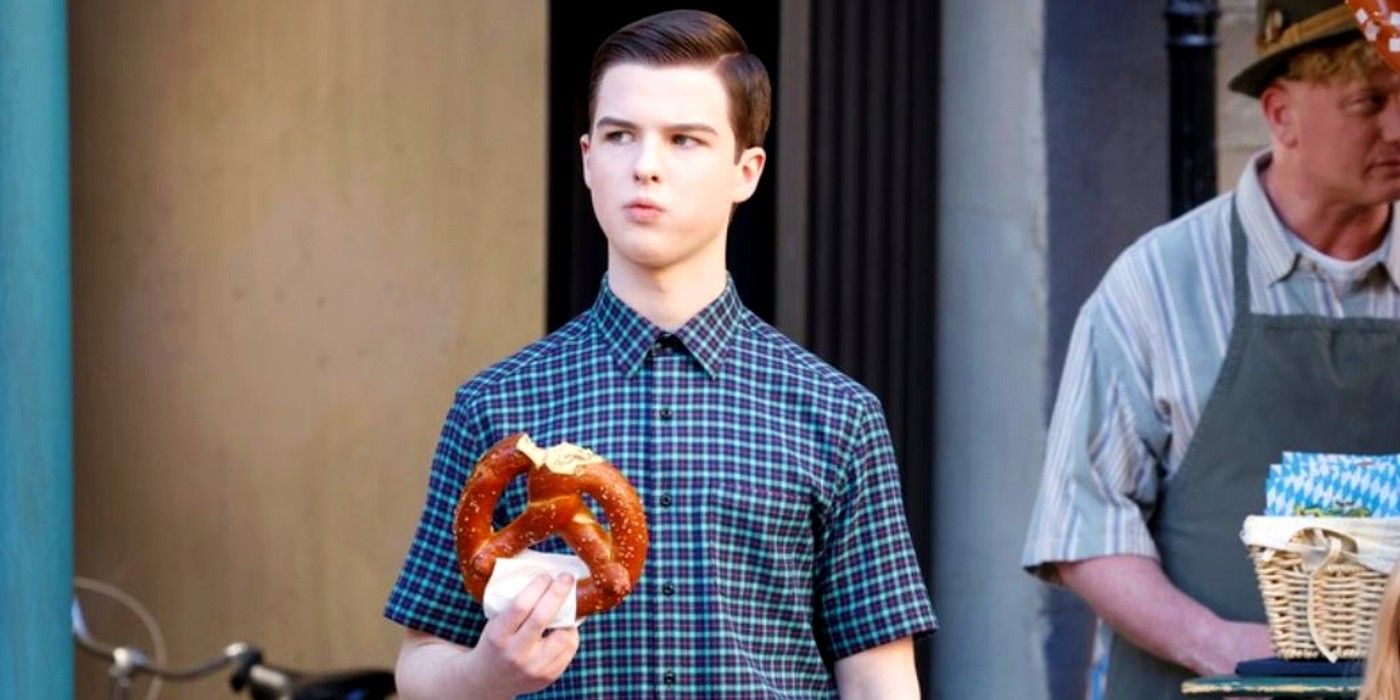
Introduction
“The Big Bang Theory” has always balanced comedy with moments of real human depth, but one plotline about infidelity became more emotional in retrospect due to revelations in its spinoff, Young Sheldon. Originally a comedic device, Sheldon’s obsessive knocking and distrust of certain social norms has a dark origin that was only recently unveiled. Fans of both series were surprised to learn that Sheldon’s childhood experiences shaped some of his quirks in ways that few anticipated, making his reactions throughout The Big Bang Theory much more poignant.
How Young Sheldon Adds Depth to The Big Bang Theory’s Storylines
Young Sheldon’s exploration of Sheldon Cooper’s backstory isn’t just about laughs; it also peels back layers of Sheldon’s personality, showing us the roots of some of his most iconic traits. The show offers a touching look into Sheldon’s childhood, revealing formative experiences that later influenced his relationships with friends and romantic partners alike.
Sheldon’s Fear of Infidelity Explained
One of the most surprising revelations from Young Sheldon is that Sheldon’s deep-seated fear of infidelity, which led to some funny but odd moments in The Big Bang Theory, actually stems from a traumatic experience in his youth. In The Big Bang Theory, Sheldon often shows a discomfort around relationships, projecting his fear onto his friends. What initially seemed like a quirk in his personality is revealed to be the result of a misunderstanding that deeply scarred young Sheldon.
The Moment That Shaped Sheldon’s Distrust
In Young Sheldon Season 7, Episode 4, titled Ants on a Log and a Cheating Winker, Sheldon walked in on a private moment between his parents. What he saw left him convinced that his father was unfaithful to his mother. Although his parents were only role-playing, Sheldon, too young to understand, was left with a lasting distrust for the people he loved. His confusion resulted in years of carrying unresolved fears into adulthood.
The Big Bang Theory Episode That Foreshadowed Sheldon’s Pain

In The Big Bang Theory Season 10, Episode 5, titled The Hot Tub Contamination, Sheldon explained his habit of knocking three times, sharing how he caught his father in what he believed was an act of infidelity. The story is initially played for laughs, but it also highlights how this childhood incident scarred him, impacting his adult relationships. Young Sheldon added layers to this story by revealing that the event was an innocent misunderstanding that Sheldon misinterpreted.
How Sheldon’s Experiences Influence His Friendships
A Mistrust of Penny’s Loyalty to Leonard
One notable instance of this mistrust surfaces in The Big Bang Theory Season 7, Episode 2, The Deception Verification, where Sheldon becomes paranoid that Penny is cheating on Leonard. What begins as a comedic misunderstanding takes on new meaning in light of Young Sheldon, as it becomes clear that Sheldon’s fear was rooted in his own past. This backstory provides a sympathetic lens through which to view his behavior and his sometimes overly cautious approach to relationships.
Sheldon’s Relationship with Amy and Fear of Betrayal
Even Sheldon’s romantic relationship with Amy is shaped by these childhood fears. His distrust surfaces in subtle ways, sometimes influencing his actions in ways that he himself doesn’t fully understand. When Amy accepts a job opportunity far from Sheldon, he is supportive but deeply anxious. Although he often manages to push past his worries for her, Sheldon’s fear of abandonment, stemming from his early trauma, is a recurring theme.
The Role of George Sr. in Sheldon’s Life

George Cooper Sr., Sheldon’s father, was a complicated figure in Young Sheldon, both loving and flawed. He genuinely cared for his family, but Sheldon’s limited understanding as a child led to a distorted image of his father as an unfaithful husband. This misunderstanding not only affected how Sheldon saw his father but also had repercussions in how he viewed relationships as an adult.
George Sr.’s Impact on Sheldon’s Worldview
In Young Sheldon, George Sr. is presented as a supportive yet imperfect parent. However, the affection between George Sr. and Mary Cooper was often misinterpreted by Sheldon, especially in moments that young Sheldon couldn’t fully understand. As a result, Sheldon’s worldview became more suspicious and fearful of the potential for betrayal.
How Young Sheldon Changes the Tone of Classic Big Bang Theory Moments
A Rewatch with New Perspectives
For longtime fans of The Big Bang Theory, watching the series again after seeing Young Sheldon adds new meaning to many of Sheldon’s quirks and behaviors. His insistence on routines and his fixation on control take on a more somber tone, as viewers understand that these habits are protective mechanisms developed in response to childhood trauma.
Why Young Sheldon Makes The Big Bang Theory’s Humor Bittersweet
What once felt like light-hearted humor now feels more complex, as Young Sheldon reveals the painful memories hidden beneath Sheldon’s eccentricities. The vulnerability that he rarely showed in The Big Bang Theory is brought to the surface, making him a more relatable and tragic character.
The Big Bang Theory’s Legacy Enhanced by Young Sheldon’s Depth
While The Big Bang Theory was a hit sitcom with many iconic characters, Young Sheldon has given the series an unexpected emotional depth. Fans can now see Sheldon as not just a quirky genius but as a deeply affected individual, shaped by events he never fully understood.
Conclusion
Young Sheldon has enriched The Big Bang Theory by shedding light on the deeper reasons behind Sheldon’s unique quirks and fears. What seemed like mere eccentricities or humor-driven behaviors are now seen as protective mechanisms, born out of misunderstood pain. The layered storytelling of both series allows fans to connect with Sheldon in a way that goes beyond comedy, bringing an unexpected layer of tragedy to the iconic character.
FAQs
- How does Young Sheldon explain Sheldon’s fear of infidelity?
Young Sheldon reveals that a childhood misunderstanding led Sheldon to believe his father was unfaithful, a memory that deeply affected his relationships and trust issues. - Why does Sheldon knock three times in The Big Bang Theory?
In The Big Bang Theory, Sheldon explains that his triple knock habit began after he believed he caught his father in an affair. This fear was later revealed to be a misunderstanding in Young Sheldon. - Does Young Sheldon make The Big Bang Theory funnier or sadder?
Young Sheldon adds emotional depth, making The Big Bang Theory bittersweet by showing the traumas that shaped Sheldon’s personality. - What role does George Sr. play in Young Sheldon?
George Sr. is a loving yet flawed father figure in Young Sheldon, and his relationship with Sheldon is complicated by misunderstandings that deeply impact Sheldon. -
How has Young Sheldon changed fans’ perception of The Big Bang Theory?
Fans now see Sheldon as a more complex character whose eccentricities are tied to unresolved childhood traumas, making both series richer in depth.